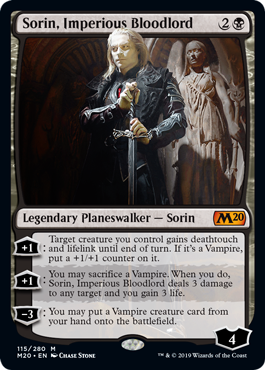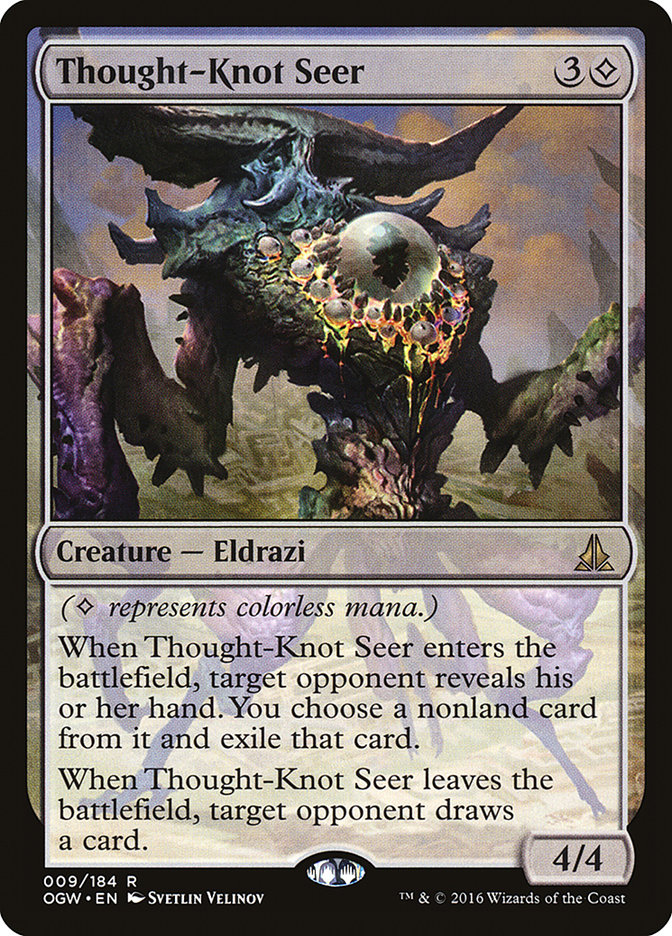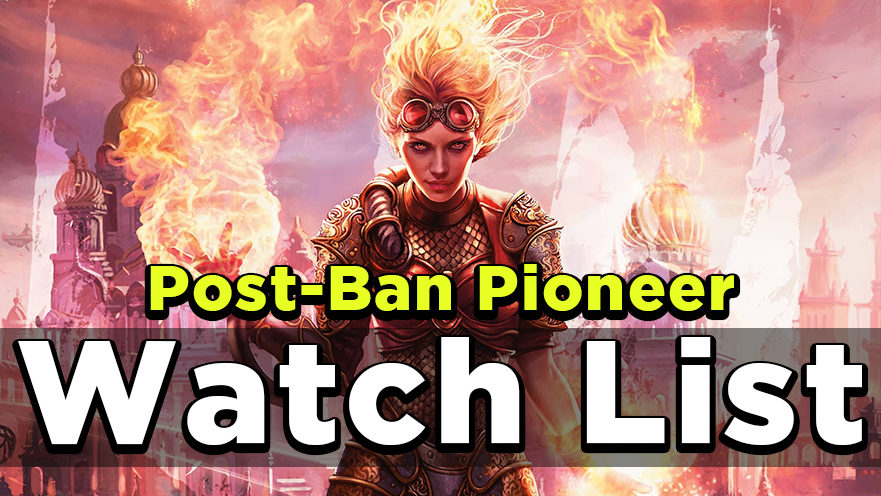And just like that, the landscape of Pioneer has changed.
Felidar Guardian, Leyline of Abundance, and Oath of Nissa are banned.
According to WotC, Copycat and Green Devotion decks were the winningest decks since the format’s inception; cards from these decks needed to be banned to ensure Pioneer’s health. What’s interesting about these bans is that they sidestep cards that many players perceived to be problems: Nykthos, Shrine to Nyx, Aetherworks Marvel, and Oko, Thief of Crowns. But, I’d argue, banning the established pillars of the format so early into its lifespan would have been very bold on Wizards’ part. I’m glad that this was the direction they took, and I’m hoping that Pioneer will be an even more diverse format going forward.
With that said, let’s get to brewing!
With Felidar Guardian out of the picture, both hard control decks and uninteractive aggro decks can thrive. Here are some cards that I believe will have a chance at breaking out post-ban.
Fires of Invention

The first big project I want to work on this week is a Fires of Invention deck. Now that I don’t have to worry about CopyCat combo on turn four, I want to build the most busted haymaker deck that doesn’t get miffed by Oko. In Standard, you can hammer home Planeswalkers and call it a day, but in Pioneer, you can do far deeper with Fires of Invention. Cards to consider include Bring to Light, Fae of Wishes, Dragonlord Silumgar, Nicol Bolas, the Ravager, Keranos, God of Storms, and Niv-Mizzet Reborn, just to name a few.
Sorin, Imperious Bloodlord

In a sea of busted three-mana Planeswalkers, don’t forget the card that had a huge impact in M20 Standard. Sorin has a huge pool of vampires to work with in Pioneer, and he can even dip into strong auxiliary options. Pack Rat can improve the floor of your cards, and Gray Merchant of Asphodel provides a huge life swing that is hard to interact with. The not-so-age-old Sorin + Champion of Dusk combo is just as powerful in Pioneer as it was in Standard, and it’s only going to get better as the format slows down.
Ensoul Artifact

The tools for an “artifacts matter” deck are already there, but many of them have been built around Hardened Scales. Ensoul Artifact is a lesser-known commodity that provides a much more potent burst of damage in an arguably better color combination for artifacts (blue-red). You also gain access to Bomat Courier, which does a wonderful job of replenishing your hand once you start dishing out your cheap spells. I fully expect this card to make a big impact now that you have more time to set up your game plan.
Thought-Knot Seer, Reality Smasher

I’m quite a bit biased here, but if the format begins to slow down, Eldrazi definitely gets better. I’m still unsure how you would build it, as you essentially have to choose between Thoughtseize and other powerful role-players or Once Upon a Time and Oko. But there is a shell here, and it’s only a matter of time until the spaghetti monsters begin their reign.
Sphinx’s Revelation

Sphinx’s Revelation hasn’t made a huge impact on Pioneer, mostly because blue-based control has been scarce. It’s very difficult to nail down a control shell that attacks a brand-new format, especially in the first few weeks. But now that things are slowing down, Sphinx’s Revelation just might be the perfect mid-game tool to keep the juice flowing in control decks, especially if aggro decks like Mono-Red become more commonplace.
Chandra, Torch of Defiance

Last, but certainly not least, is the best Chandra ever printed. Chandra has already made a splash in Pioneer, but now that you don’t have to worry about dying on turn four, you can cast her with more confidence. The key thing to remember is that Chandra isn’t necessarily the best at anything, but she is definitely second- or third-best at everything she does — and in any midrange deck, that’s exactly where you want to be. I will definitely be looking to play Chandra in the near future.
There are, of course, plenty more cards that might be overlooked as Pioneer continues to develop. The format is so big and so fast-moving that things can easily slip under the radar. It’s important to explore all your options – and, more importantly, don’t rule anything out!

Anthony Lowry is a high level competitor in several games, and Magic is no exception. His newfound passion for deckbuilding has reignited his drive to compete and test his skill against the best.

